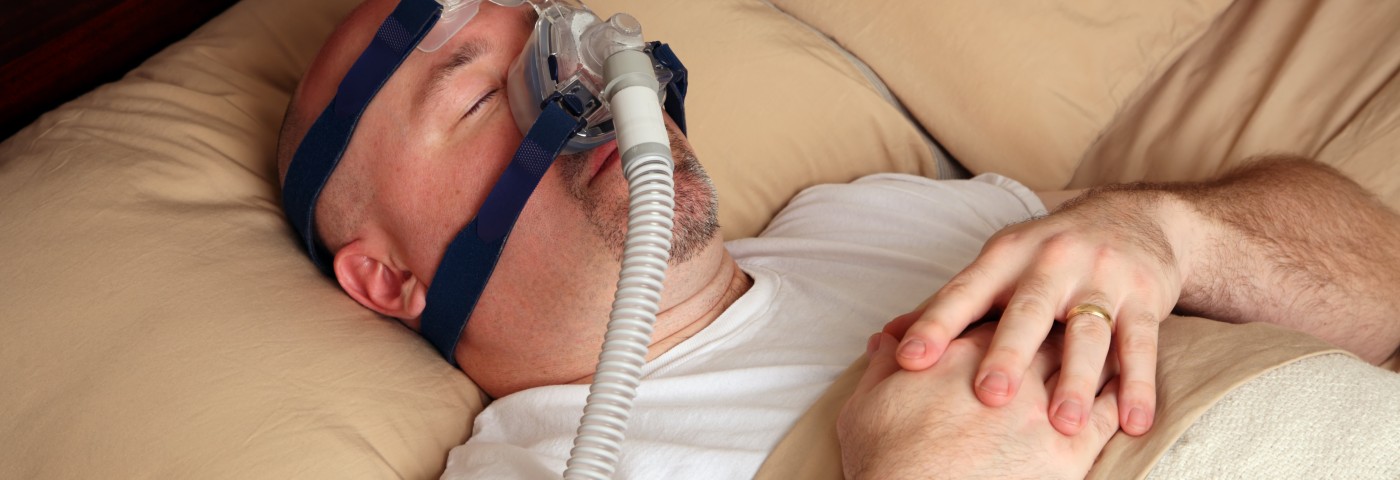Individuals with obstructive sleep apnea (OSA) and controlled type 2 diabetes may not experience improvements in glycemic control with the use of continuous positive airway pressure (CPAP), in contradiction to recent research, according to clinical trial results published online ahead of print in the American Thoracic Society’s American Journal of Respiratory and Critical Care Medicine.
“Many studies have indicated that OSA may contribute towards the development and progression of type 2 diabetes,” said Jonathan Shaw, MD, the study’s lead author, associate professor and head of Population Health at Melbourne’s Baker IDI Heart and Diabetes Institute, in a news release. “However, proving that link, and determining if treating OSA could have benefits for glucose control, requires intervention studies. Some uncontrolled studies had reported improved glucose control after starting CPAP, but some small controlled trials did not support this.”
Type 2 diabetes and OSA are common co-existing conditions in patients. CPAP is a treatment for people with breathing problems, such as sleep apnea, that uses mild air pressure to keep the airways open.
A team of researchers in Australia and the U.S. conducted an open-label, six-month, randomized, parallel-group clinical trial in 298 patients with fairly well-controlled type 2 diabetes, and who had been recently diagnosed with OSA. Patients were randomly assigned to either receive standard care or CPAP treatment for their sleep apnea. The researchers over the stud period assessed changes in glycemic control, blood pressure, daytime sleepiness, and quality of life.
Results of the study, titled “The Effect of Treatment of Obstructive Sleep Apnea on Glycemic Control in Type 2 Diabetes,” revealed no differences in changes in glycemic control (measured by HbA1c levels) at three and six months between the study groups.
Over the six months analyzed, however, a greater decrease in diastolic blood pressure was recorded in patients treated with CPAP in comparison with those who received standard care. This result was significant only among patients using CPAP for at least four hours per night.
CPAP patients also showed a significant improvement in daytime sleepiness, assessed with the Epworth Sleepiness Index. Quality of life assessment in this group also revealed improvements in vitality, mental health, and mental component summary scores.
In conclusion, the trial showed no effect of CPAP on glycemic control in patients with relatively well-controlled type 2 diabetes and OSA.
The researchers noted possible explanations for this finding, including that OSA may play a bigger role in triggering diabetes than in the control of already established diabetes. Other suggestions were that the trial’s four-hour nightly limit on CPAP use might have been low, and that CPAP may only benefit patients with severe OSA and/or poor glycemic control, who were under-represented in the cohort analyzed.
“OSA is common in people with type 2 diabetes, and although we did not find a glycemic benefit for its treatment, clinicians should have a high index of suspicion for its presence when patients experience daytime sleepiness, snoring and resistant hypertension,” Dr. Shaw said. “Identification and treatment of OSA in these patients may lead to clinically meaningful benefits.”
Researchers suggested further studies examine whether there are sub-groups of patients for whom CPAP therapy might improve metabolic control. Candidate sub-groups could include those with pre-diabetes, as well as those with poorly controlled diabetes and more severe OSA.
Findings from a separate and recent six-month, randomized and controlled trial published in the same journal (American Journal of Respiratory and Critical Care Medicine) also assessed CPAP and glucose control, but this time in a group of patients with poorly controlled diabetes. The trial’s results showed that CPAP significantly improved glycemic control at six months, but not at three months.
“Differences in race and ethnicity and changes in diet, exercise and metabolism that may occur with CPAP, may have also contributed to the different findings,” said Atul Malhotra, MD, president of the American Thoracic Society, chief of pulmonary and critical care medicine and director of sleep medicine at the University of California, San Diego. Dr. Malhotra added that more research on the subject is needed.


